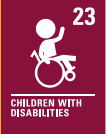My Thinking
|
My Thinking / Functional Living Skills |
||
|---|---|---|
|
Skills to Work it Out |
Functional Skills |
Investigating & Exploring |
|
Sequences |
Time |
Gardening & Horticulture |
|
Colour |
Functional Shopping |
Reasoning / Critical thinking |
|
Pattern |
Budgeting |
Problem solving |
|
Shape |
Personal Care |
Materials |
|
Measure & Size |
Practical cookery |
Seasons |
|
Weight & Capacity |
The Senses |
|
|
Number |
Animal Care |
|
|
Money |
The Food We Eat |
|
|
Data |
||
|
Calculations |
||
|
Coding – ICT/Mechanics |
||
Subject Story: My Thinking / Functional Living
|
Our Agreed consistencies for My Thinking are:
|
If you were to walk into a My Thinking lesson at Stone Bay School you would see:
|
In our My Thinking curriculum you will see that we value inclusion and diversity:
|
 |
Pupils at Stone Bay School say this about My Thinking:
|
|
|---|---|---|
|
British Values and Spiritual, Moral, Social and Cultural Learning (SMSC) in My Thinking: Spiritual – by exploring the local community pupils learn about diversity and become tolerant of others. By having opportunities to learn outside the classroom, pupils develop a sense of enjoyment and fascination in learning about the world around them. Moral – through being encouraged to develop curiosity, pupils are able to form their own opinions, listen to those of others and make their own choices. Social (including British Values) – pupils are able to work, play and explore alongside others. They have access to the local community, expanding their opportunities for social interaction. Cultural (including British Values) – pupils take part in and respond to a wide range of mathematical and scientific opportunities. They have access to visits outside of the classroom to areas of interest within the local environment e.g. forest school, beaches, parks etc. |
||
|
Article 23 – A child with a disability has the right to live a full and decent life |
||
|
The subject area of My Thinking consists of three strands: Skills to work it out - Pupils learn mathematical functional skills that will help them to understand and navigate the world around them. They engage in a variety of practical based activities designed to support them to be as independent as possible in their daily lives and for the future. Pupils learn the skills to work things out in both the classroom and other types of environments such as the kitchen and home. Mathematical functional skills are embedded throughout the school day. Consistency of teaching is ensured through the use of the White Rose scheme work. Functional skills - Pupils learn the skills they need to prepare them for adult life. They are given the opportunity to take their learning outside of the classroom, to go out into the community and to learn in real life situations.They are given the tools to be able to develop their own independence in relation to both their private life and when out in the community. By going out into the community, pupils learn about diversity and about tolerance of others. Pupils learn skills for the home and workplace, equipping them with functional skills that they can take forward into adulthood. Investigating and exploring - Pupils are provided with the opportunity to explore a range of different environments, to develop a sense of awe and wonder at the world around them and learn the skills they need to solve problems and think critically. They have access to a wide range of outdoor activities and learn skills for the home and workplace. They have the opportunity to experience and care for plants and animals which helps pupils to develop an understanding of how to care for others. At KS4 and KS5, the area of My Thinking develops into Functional living skills where pupils continue to build upon their skills and knowledge, laying the foundations for them to lead happy, independent fulfilling lives into adulthood |


